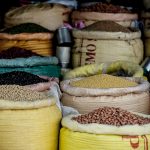The UBS Global Wealth Management has prepared a 67-page report that emphasizes on the commercial viability of lab-grown plant-based protein, also popularly known as ‘fake meat’. The report takes a cue from the fact that Beyond Meat Inc., the producer of “vegan burgers,” displayed remarkable performance in the IPO market. The company’s shares crossed a whopping US$200 in June as compared to the US$25 offering price.
“Mock meat was an almost comical fad 20 years ago. It’s no laughing matter today, given the industry’s meteoric rise in recent years,” said Wayne Gordon, Senior Asia-Pacific Strategist, UBS Global Wealth Management in the report.
According to the group’s estimates, the fake meat market is highly likely to touch US$85 billion by the year 2030. It currently stands at US$4.6 billion. UBS report also predicts excellent growth for the agriculture technology market from the current US$135 billion to nearly US$700 billion.
The UBS report highlighted the fact that lab-grown food that replicates meat, fish, eggs, and dairy products has a lower carbon footprint. Also, evades the need to slaughter animals. It is therefore expected to be a commercially viable option over the next decade.
The report further pointed out that the digital economy managed to reach only 0.3% of agriculture last year. However, it is expected to steadily increase, which is reflected by a surge in technology investment by 43% in 2018 to reach US$16.9 billion from what it was in 2017.
The UBS has also predicted a 16% growth for both smart farming and online food delivery in its 2030 outlook report. Meanwhile, the group forecasts 13% growth for the seed treatment sector and 9% for seed science. It also stresses investors to “diversify their exposure and own listed and unlisted companies alike.”
Currently, the agriculture sector comprises 40% of land use, 30% of greenhouse gas emissions, and 70% of freshwater consumption. These figures are mentioned in the UBS report, as cited by the UN. The report throws light on biological solutions of which lab-grown food is also one, among others such as vertical farming and artificial intelligence.


















